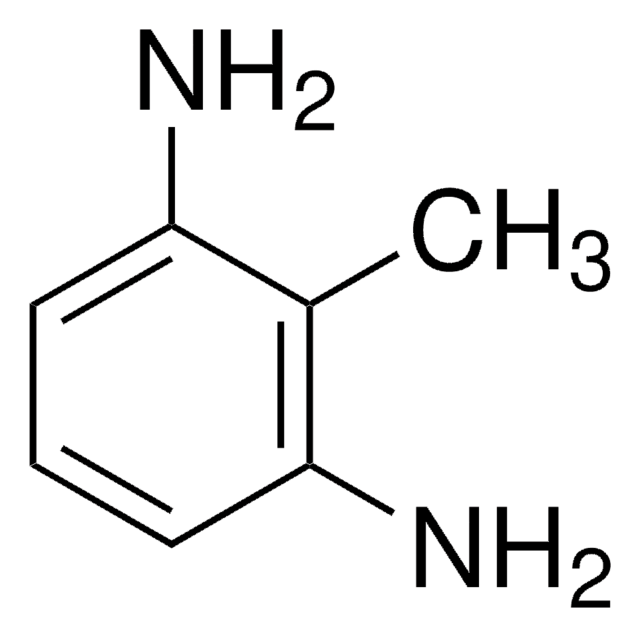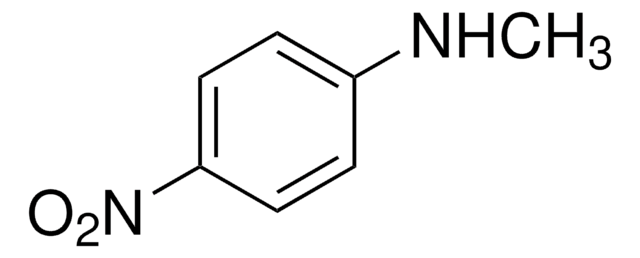All Photos(1)
About This Item
Linear Formula:
C6H5NHCHO
CAS Number:
Molecular Weight:
121.14
Beilstein:
906934
EC Number:
MDL number:
UNSPSC Code:
12352100
PubChem Substance ID:
NACRES:
NA.22
Recommended Products
Quality Level
Assay
99%
form
powder
bp
166 °C/14 mmHg (lit.)
mp
46-48 °C (lit.)
solubility
water: soluble 25.4 g/L at 20 °C
water: soluble 28.6 g/L at 25 °C
density
1.144 g/mL at 25 °C (lit.)
SMILES string
O=CNc1ccccc1
InChI
1S/C7H7NO/c9-6-8-7-4-2-1-3-5-7/h1-6H,(H,8,9)
InChI key
DYDNPESBYVVLBO-UHFFFAOYSA-N
Looking for similar products? Visit Product Comparison Guide
Application
Formanilide was used to study the zero electron kinetic energy(ZEKE) spectra of cis- and trans-formanilide. It was used to investigate the gas-phase structures of the two isomers of the trans-formanilide-water complex by two-colour (1+1′) resonance enhanced multiphoton ionisation (REMPI) and ZEKE spectroscopy.
Storage Class Code
11 - Combustible Solids
WGK
WGK 2
Flash Point(F)
235.4 °F - closed cup
Flash Point(C)
113 °C - closed cup
Personal Protective Equipment
dust mask type N95 (US), Eyeshields, Gloves
Choose from one of the most recent versions:
Already Own This Product?
Find documentation for the products that you have recently purchased in the Document Library.
ZEKE photoelectron spectroscopy of the cis and trans isomers of formanilide.
Susanne Ullrich et al.
Angewandte Chemie (International ed. in English), 41(1), 166-168 (2002-12-20)
Hydration of a cationic amide group: a ZEKE spectroscopic study of trans-formanilide-H2O.
Ullrich S, et al.
Physical Chemistry Chemical Physics, 4(13), 2897-2903 (2002)
Johnson K Agbo et al.
The Journal of chemical physics, 127(6), 064315-064315 (2007-08-21)
A potential energy surface for trans-formanilide (TFA)-H2O is calculated and applied to study energy flow in the complex as well as the kinetics of water shuttling between hydrogen bonding sites on TFA. In addition to the previously identified H2O-TFA(C[Double Bond]O)
Mitsuhiko Miyazaki et al.
Physical chemistry chemical physics : PCCP, 11(29), 6098-6106 (2009-07-17)
We measured the infrared (IR) spectra of supersonically cooled N-phenylformamide (formanilide) and N-phenylacetamide (acetanilide) in the amide band and X-H stretch vibration regions by using IR-UV depletion spectroscopy combined with a newly developed mid-IR light source based on difference frequency
Ahmed M Sh El-Sharief et al.
European journal of medicinal chemistry, 44(11), 4315-4334 (2009-08-12)
Halogenated and alkylated N-arylcyanothioformanilides were reacted with the nucleophilic reagents triethylamine, hydrazine and diphenyldiazomethane to produce N-arylcyanothioformanilide ammonium salts, a thiosemicarbazide and a 2-(arylamino)-3,3-diphenylacrylonitrile, respectively. They also underwent several types of electrophilic reactions with aryl-, arylbisisocyanates and arylisothiocyanates to yield
Our team of scientists has experience in all areas of research including Life Science, Material Science, Chemical Synthesis, Chromatography, Analytical and many others.
Contact Technical Service








